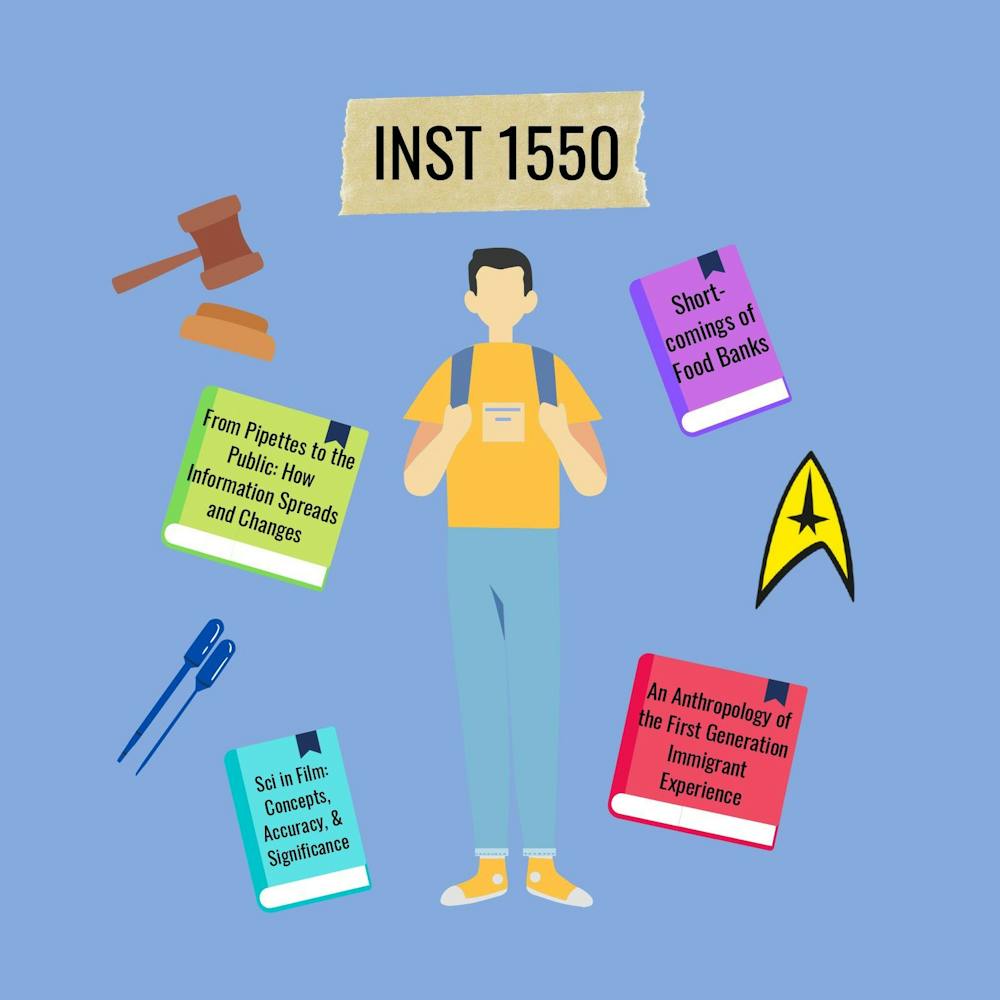Final approval for six student-led courses to be led this spring was recently issued as a part of Student Council’s CavEd Program. Run by the Academic Affairs Agency of Student Council, the program offers up to eight student-initiated courses each semester.
The CavEd program — a longstanding program at the University — received and accepted six applications from undergraduate students during its spring application cycle. These courses have yet to reach their respective enrollment capacities of 20 students. Cumulatively, 21 students have enrolled in the new CavEd course offerings, with the highest enrollment belonging to “Science in Film: Concepts, Accuracy, & Significance” instructed by Veer Patel — a course with just seven open seats left.
Casey Gottlieb, fourth-year College student and director of the Academic Affairs Agency, said the CavEd program serves a vital role in students’ academic autonomy and exploration.
“The CavEd program is essential in that it allows students to take charge of their academic experience and to teach courses in topics and subjects that they are passionate about,” Gottlieb said.
The process to become an instructor of a CavEd course demands months of planning and preparation. Prior to or during the semester they apply, student instructors must pass INST 3150, a one-credit Pedagogy Seminar. The eight-week seminar ends a week before applications are due and covers pedagogical skills necessary for teaching a college-level course.
Michael Palmer, director of the Center for Teaching Excellence and professor of INST 3150, said in an interview with the Cavalier Daily that the heart of his seminar is the objective to teach undergraduate students how to be effective teachers.
“[INST 3150 gives] students a foundation in teaching and in course design so they can be successful, so that the change that they affect for their students is actually a positive one,“ Palmer said.
Palmer believes that teaching is a steep responsibility — one that if done correctly can affect great change in the world. As such, he also recognizes the dangers of bad teaching practices.
“Teaching is about changing lives, by changing the way people think, act [and] feel,” Palmer said. “And so it's serious business.”
Prior to submitting their CavEd application, student-instructors must also identify a faculty sponsor willing to oversee their course, they can submit a syllabus to the Academic Affairs Agency. After receiving applications, the agency conducts interviews involving a teaching demonstration and a question-and-answer period. Finally, Association Dean Erin Eaker assesses the course proposals.
This spring’s courses include classes ranging from film franchises to the shortcomings of foodbanks. Listed under the pneumonic INST 1550, the classes range from one to three credits and are graded on a credit/no-credit basis. CavEd-approved courses do not count toward major requirements, though they do count toward the 120 degree credits required for graduation.
Fourth-year College student Ilyas Saltani’s course “An Anthropology of the First Generation Immigrant Experience” is just one of the six student-led courses that will be offered this spring semester. Saltani’s course was inspired by personal experience and will recontextualize shared first-generation immigrant experiences through an anthropological lens for enrolled students.
“It's one thing to sit in a class and have a professor educate students on something and that power dynamic exists there,” Saltani said. “It's another thing for students to just be in community with other students who maybe share their experiences or passions, and then talk to them on a discussion basis where, you know, those power dynamics aren't there.”
Third-year College student Daria Gundermann plans to teach a class titled “From Pipettes to the Public: How Information Spreads and Changes.” Gundermann’s class was inspired by a course she took in the College titled “Unforgettable Lectures,” in which every class featured a new lecturer and topic.
“[I] had the idea to create a unified class around a theme that I really like, but through a variety of small lenses, so people can kind of get a feel for what they like, what they don't like, what they might potentially go on to try to research and just really have a conversation about a variety of topics that are interesting,” Gundermann said.
Students will participate in a range of discussion-based activities centered on the ways in which information and how it transforms as it is translated from academic contexts into digestible content for public consumption.
Gundermann said she is excited for what students will offer during discussions and is committed to providing a comfortable atmosphere for students to share their ideas.
“[CavEd] puts learning in a different context,” Gundermann said. “Instead of professors being told what to teach [and] instead of always having that defined teacher and defined student role, it serves to sort of remix those and make learning more of a passion project.”
Fourth-year College student William Musk is looking forward to teaching a class about Star Trek, which he has always been a fan of. Through his class, which is titled “Star Trek: Morals in the Medium,” Musk wants to do more than just spread an appreciation for the show — rather, he seeks to dissect the ways in which messages and morals are injected into the media. Through Star Trek, he hopes to ingrain in students tactics through which they can practice more conscientious media consumption.
All CavEd student instructors are required to have a faculty sponsor to serve as a mentor available for questions the student teachers may have concerning course content and teaching strategies.
Musk selected Physics Prof. Gordon Cates as his faculty sponsor. While taking one of
Cates’ courses, Musk attended office hours, where the two bonded over their mutual appreciation for Star Trek.
“[Cates] really fell in love with the idea of being able to say that he was involved in making a Star Trek class happen,” Musk said.
All student-initiated courses are available for open enrollment on the Student Information Services platform. Once the courses reach their 20-student enrollment cap, those seeking enrollment will be placed on a waitlist.







